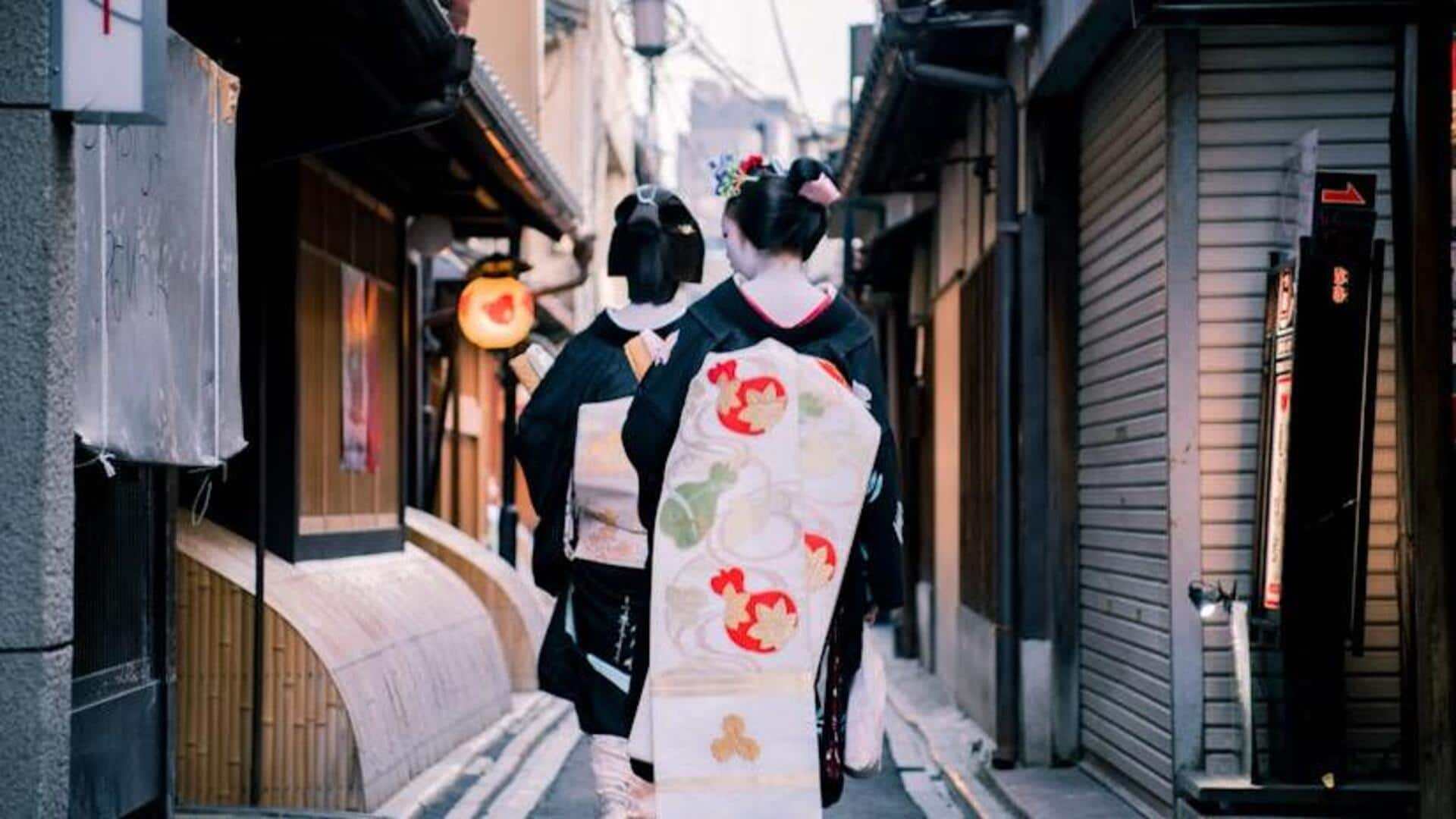
Delve into Kyoto's time-honored traditions
What's the story
Kyoto, once the capital of Japan, is a city where ancient traditions are not just preserved; they are a living part of its daily life. From the serene tea ceremonies to the majestic geisha dances, Kyoto offers a journey back in time. It's a place where every alleyway and garden tells the story of a rich cultural heritage that continues to thrive amidst modernity.
Tea ceremony
The art of tea ceremony
The Japanese tea ceremony, known as chanoyu, is more than just drinking tea. It's a spiritual and philosophical experience emphasizing harmony, respect, purity, and tranquility. In Kyoto, numerous tea houses offer visitors the chance to participate in this ritualistic practice. The ceremony involves precise movements and gestures that have been passed down through generations, making it a profound way to connect with Japanese culture.
Geisha dance
Geisha and maiko performances
Experiencing a geisha or maiko (apprentice geisha) performance is like stepping into another era. These highly skilled entertainers undergo years of training in traditional Japanese arts such as dance, music and singing. In Kyoto's Gion district, you can witness these elegant performances firsthand. The intricate kimonos, detailed makeup and graceful movements tell stories without words and are an essential part of Kyoto's cultural fabric.
Zen meditation
Zen meditation sessions
Zen Buddhism plays a significant role in Kyoto's history. Many temples across the city offer Zen meditation sessions for both beginners and experienced practitioners. Sitting quietly in the serene surroundings of a garden or hall allows visitors to experience mindfulness and peace. This practice promotes mental clarity and relaxation—a perfect counterbalance to the hustle of modern life.
Handicrafts
Traditional handicraft workshops
Kyoto is renowned for its traditional handicrafts such as Kiyomizu pottery, Yuzen dyeing textiles, and bamboo crafts. Various workshops allow visitors to observe these crafts being made or even try their hand at creating their own souvenirs under expert guidance. Participating in these workshops provides insight into the meticulous attention to detail that defines Japanese craftsmanship.
Festivals
Seasonal festivals
Kyoto's calendar is filled with centuries-old festivals rooted in Shinto and Buddhist traditions, reflecting seasonal and historical changes. Spring's cherry blossom viewing parties to autumn's Jidai Matsuri (Festival of Ages) offer unique experiences. Parades, rituals, and music performances at these events highlight Kyoto's deep connection with its past, showcasing the city as a bastion of tradition in a modern world.